War Horse (2011)
Rated PG-13
(for intense sequences of war violence, and some language)
Released: December 25, 2011
Runtime: 146 minutes
Director: Steven Spielberg
Starring: Jeremy Irvine, Peter Mullan, Emily Watson, David Thewlis, Tom Hiddleston, Benedict Cumberbatch, Celine Buckens, Niels Arestrup
Available to rent through Amazon Video.
Day 28 of “30 Days of Spielberg” – Part 2
It had been nearly ten years (and arguably twenty) since a Steven Spielberg film was this effectively sentimental.
War Horse tugs at our emotions as unrepentantly as anything the earnest auteur has ever made. It may not be as personal as something like E.T., and yet you can’t walk away from this movie without sensing how deeply Spielberg’s heart is in it.
This is also one of the more underappreciated artistic triumphs of Spielberg’s career (perhaps due, in part, to being released a mere four days after – and in the lingering shadow of – The Adventures of Tintin, one of his most underwhelming).
Told on an epic scale, it’s a visceral war movie in its own right. War Horse may have been quickly relegated to minor Spielberg status but, with the passage of time, it should be re-evaluated as one of his major achievements.
As with previous heart-tugging high watermarks, Spielberg’s sentimentality here is not warm and fuzzy. It’s bittersweet, poignant. Tempered by separation, tragedy, and loss. War Horse doesn’t satiate the heart with cheap wish fulfillment. Its evocations – while bold and unabashed – are hard-earned and deeply wrought, set against the backdrop of a world at war.
Based on the young adult novel by Michael Morpurgo and inspired by the heralded award-winning stage play (Spielberg said he was ready to make the film version by intermission), War Horse puts an equine spin on the “boy and his dog” archetype, and then adds a majesty to it.
This comes not only in the muscular grandeur of the central steed, or more potently in The Great War, but especially in how this narrative tells the story of two characters – one a British teenager, Albert, and the other a horse, named Joey – each with something to prove. Together, and then apart, they do.
This majestic scope is also captured in the film’s aesthetic. War Horse is Spielberg’s most blatant homage to his hero John Ford that he’s ever done. Though flashes of Ford’s influences can be seen throughout Spielberg’s career, with War Horse it’s as if he set out to channel John Ford – and honor him – in the same way he intended for Stanley Kubrick in A.I.: Artificial Intelligence.
More specifically, it wasn’t Ford’s westerns so much that Spielberg was emulating but rather his tales of the common man, odes to the Salt Of The Earth working class. Films like The Grapes Of Wrath and The Quiet Man.
The most direct Ford influence at play in War Horse is the Welsh-set How Green Was My Valley (or, more infamously, the movie that beat Citizen Kane for Best Picture). One of the most stunning black-and-white films you’ll ever see, Spielberg essentially makes the Technicolor version of Ford’s pastoral landscapes, at times drawing obvious homages. (Watching these two movies back-to-back would be a great “film school” double feature.)
Spielberg venerates other epics of the time as well (one can’t see the film’s final shots without instantly thinking of the silhouettes against dusk horizons from Gone With The Wind), making for one of the most gorgeously shot films of Spielberg’s entire oeuvre. It’s one that still has me constantly shaking my head in slack-jawed awe at the pictures he and cinematographer Janusz Kaminski paint.
In an era when studios digitally amplify even the most basic images and settings, it’s refreshing (and for a cinephile, quite frankly, even moving) to see a movie so classically rendered, one that would stand as an equal among the best of Hollywood’s Golden Age. (For the craftsmanship on display alone, it boggles my mind how this movie has been dismissed – by critics especially.)
For his part, John Williams‘ offers up the most stirring score of his late career, with epic cues like the one that starts at 3:15 in this track (although the first crescendo at 1:34 is worth the listen, too). Building to a sweep that always gives me chills, it is a fanfare for The Common Man.
Along with the style, Spielberg also captures the spirit and decency of the people who work the land, as Ford did, including those with self-destructive flaws. Albert’s father Ted is the town drunk, even as he genuinely strives to maintain the family farm and do right by his wife and son. Albert’s mother Rose, however, is a pillar of integrity, steadfastness, and grace.
In a gentle moment early on, both maternal and with fidelity, Rose has a conversation with Albert explaining to him why he should temper his anger and disappointment toward his father, and even be forgiving. It’s a perspective as empathetic as it is honest and wide-eyed (not weak or enabling) that also helps us to understand why she’s never left him, and never will.
The scene, along with another between her and Ted, are moments that could easily be torn from the pages of Steinbeck. Emily Watson embodies Rose with an unwavering strength and unassuming humility; she’s subtly inspiring. Her virtues are replete throughout the film as well (often in contrast to mankind’s worst), with the titular horse serving as their iconic embodiment.
As a narrative construct, the second and third acts of War Horse sort of work like a Forrest Gump travelogue through World War I (crossing paths with, among others, Tom Hiddleston and Benedict Cumberbatch who were each on the cusp of their fame in the U.S.), except the focus is as much on the people that the horse encounters as it is the horse itself.
Even so, it’s amazing how much of a character Spielberg creates out of Joey, the horse, without ever resorting to a style that “personifies” him. The connection he makes with Albert, and others, is convincing precisely because the portrayal is real, not romanticized.
Unlike Gump, the journey doesn’t touch on the war’s major events or turning points but rather the full swath of the people in it, from soldiers good and bad on both sides of the conflict to innocent folk caught up in the proverbial crossfire.
An episode halfway through involving a young girl and her grandfather, living in the French countryside, is particularly touching. Her spirit is effervescent despite suffering from frail bones, he’s understandably overprotective, and Joey serves as a muse of courage for both to forge.
The net effect of it all actually works as a perfect, sobering war film for those still too young to experience the literal blood and guts of Saving Private Ryan. Though still intense and perhaps surprisingly harrowing in its own unflinching way, War Horse would help older middle school aged children (and up) confront and grapple with the unforgiving ravages of war for the first time.
A few battle scenes are particularly traumatic, with one sequence of trench warfare evoking the horrors of Saving Private Ryan’s D-Day invasion (but minus the gore, and also without Kaminski’s drop-frame technique that made the Normandy beaches even more chaotic).
Another, by stark contrast, is a temporary truce – with Joey, again, at the catalytic center – that no doubt drew inspiration from the real-life Christmas Truce of 1914. Through this scene and others, War Horse uses Joey to help show that benevolence – no matter how fleeting or faint – fights to emerge in the face of such bleak inhumanity.
The film also tracks Albert, who is eventually enlisted into the war as well, building toward the inevitable reunion at war’s end. Cynics (i.e. most film critics) would say that the reunion is contrived. I see it, rather, as a merciful dénouement to this wartime fable, one in desperate need of a life-affirming miracle. So, too, is the meeting of Albert and one of Joey’s wartime owners.
I may be a sap, but these moments never fail to put a lump in my throat and tears in my eyes, perhaps especially because they’re not overplayed. Rather, they’re subtle and tender; a reminder of the very things – found in simple, common life – they were all fighting for.
There’s an overwhelming (at times devastating) beauty to Spielberg’s filmmaking here, but there’s also more. There’s a poetry. A lyricism. An undeniable humanity. I may be the only one who thinks it, but War Horse is a work of art.
Available to rent through Amazon Video.
NOTABLE TRIVIA
- While still shot on film, this marked the first film Spielberg allowed to be edited digitally. All others had been cut, from the actual print, the old fashioned way: on a Moviola. The Adventures of Tintin must’ve been the gateway; the computer animated feature was also cut digitally, but by necessity of the fact that it was an entirely digital creation, not shot on film. He and editor Michael Kahn have since gone back to the Moviola. They felt that digital editing rushed their creative process too much.
- This marked the sixth time that Spielberg released two films in one calendar year, except this time instead of being separated by 6 months it was only 4 days. The Adventures of Tintin opened on December 21st, and War Horse opened on Christmas Day, 2011. The other five Summer/December splits were:
- 1989 – Indiana Jones and The Last Crusade / Always
- 1993 – Jurassic Park / Schindler’s List
- 1997 – The Lost World: Jurassic Park / Amistad
- 2002 – Minority Report / Catch Me If You Can
- 2005 – War Of The Worlds / Munich
- Only three shots, lasting three seconds each, were digitally enhanced. Otherwise, everything seen is real. Spielberg was quoted as saying, “That’s the thing I’m most proud of. Everything you see on screen really happened.”
- Further emphasizing that point, the film utilized 5800 extras and background talent.
- Jeremy Irvine, who played Albert (in his feature film debut), actually contracted trench foot while shooting the war scenes.
- Eventual Oscar-winner Eddie Redmayne was almost cast as Albert.
- The location where horses drag German artillery up hilly terrain was the same location for the opening battle scene of Gladiator.
- Spielberg Oner alert: a nearly 2-minute single take about halfway through, as German soldiers ransack the home of the French girl and her grandfather.
- For his battle scene, Tom Hiddleston shared a note that Spielberg gave him for one of his close-ups. “Give me your war face,” Spielberg told him. “I want you to de-age yourself by 20 years. So you’re 29, and when you see those machine guns, you’re 9 years old. I want to see the child in you.” Hiddleston said of the direction, “I just thought that was one of the most astonishing acting notes I’d ever been given.”
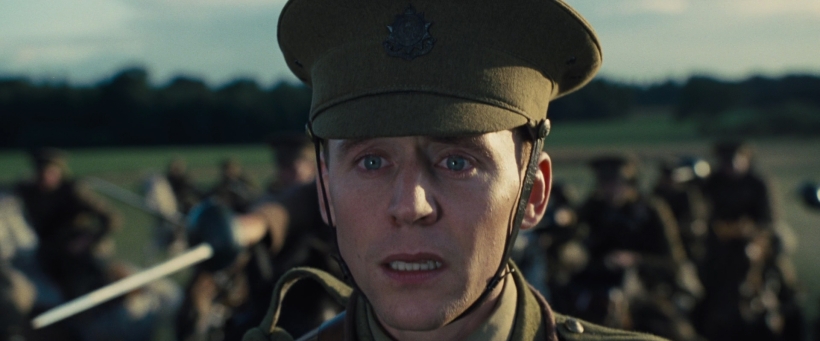
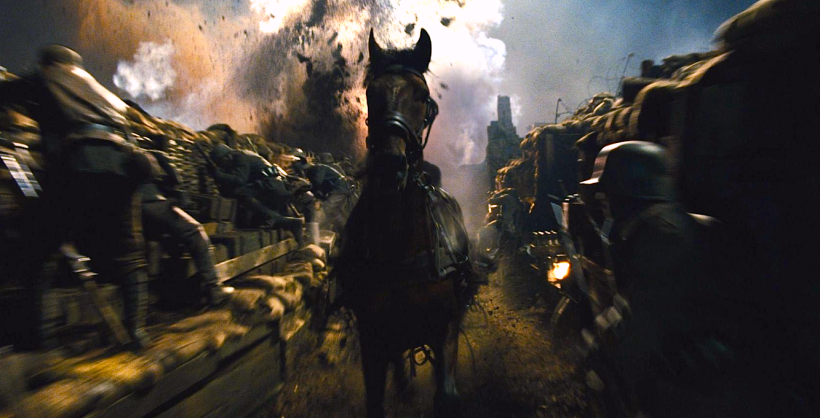
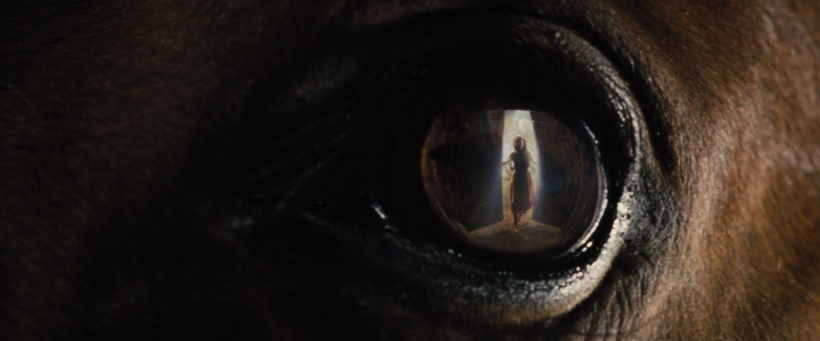
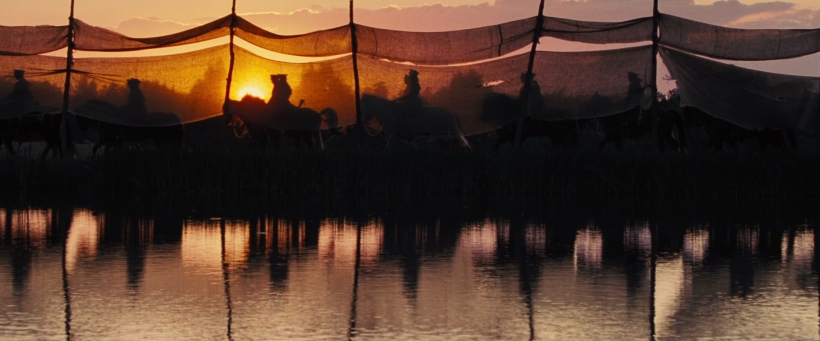
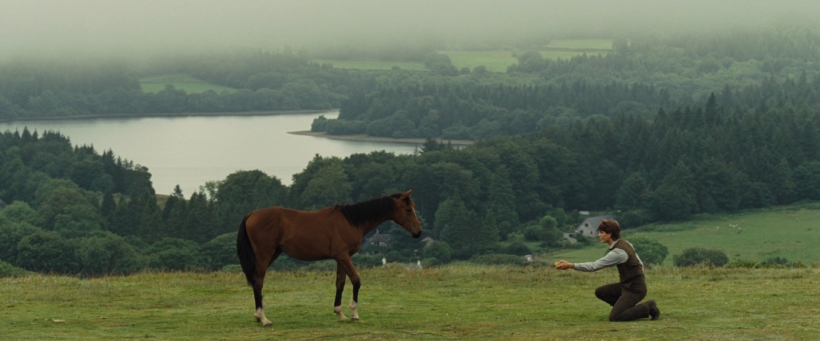
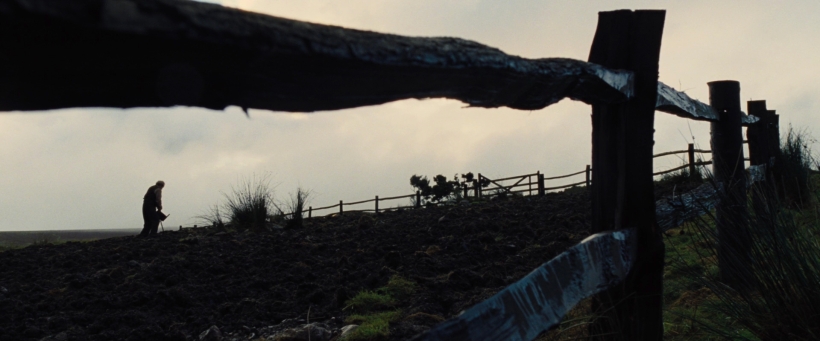

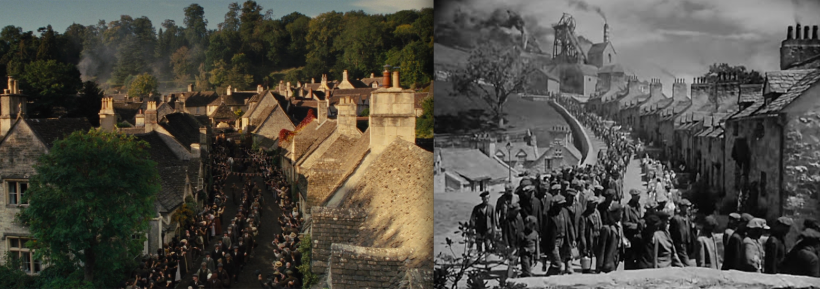
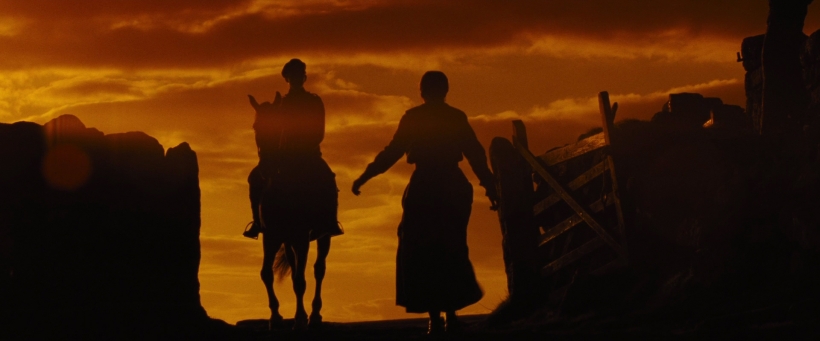
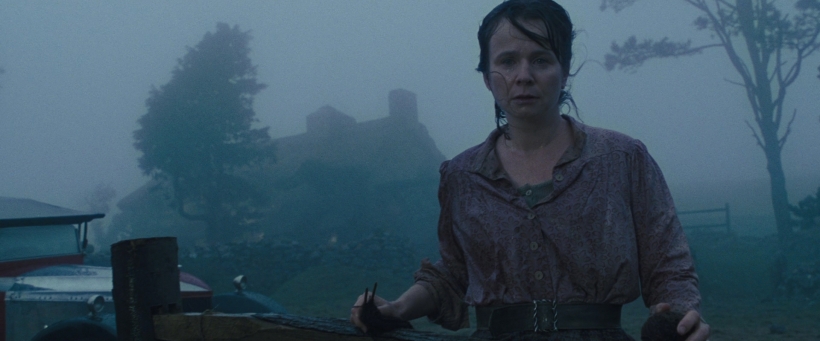
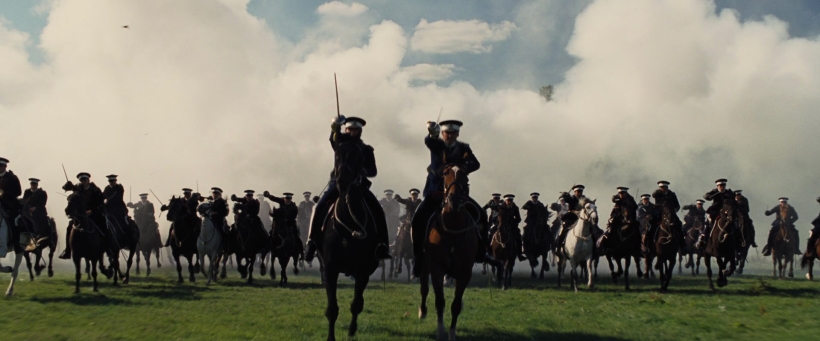
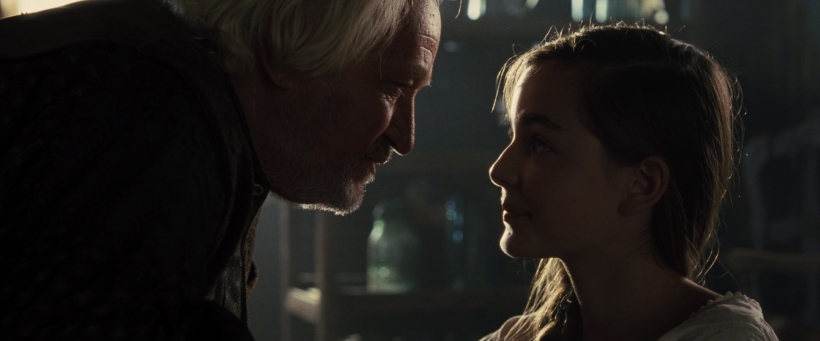
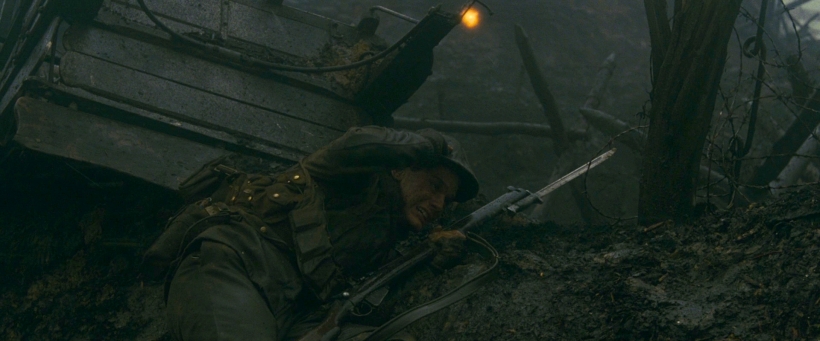
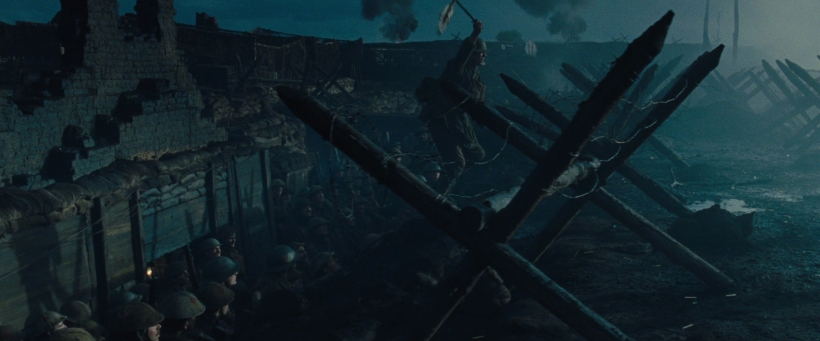
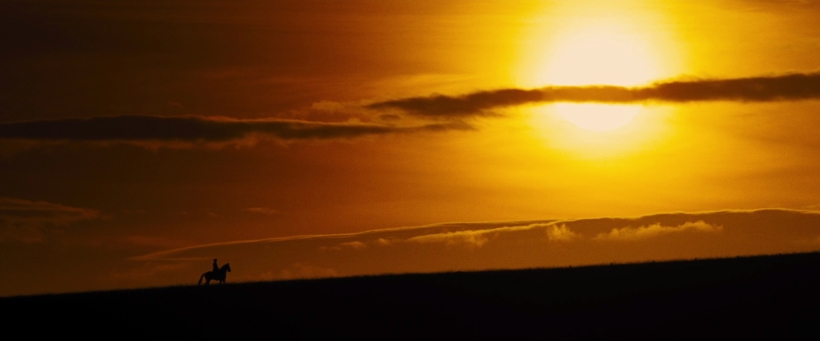
Skipped this one for all the reasons you summarized – now planning on giving it a second chance. Can’t say I “envy” this marathon, but it’s definitely made me re-appreciate Spielberg.
If you haven’t, check out the DGA podcast where he discusses Bridge of Spies with Scorsese as there are some great comments on his lack of digital effects in that one as well.
https://m.soundcloud.com/thedirectorscut/episode-1-bridge-of-spies-with-steven-spielberg-martin-scorsese
LikeLiked by 1 person
Yes, I did watch that Spielberg/Scorsese conversation. I even blog posted about it (I’m so predictable). Great conversation, and yes, when it comes to these “real world’ movies (as opposed to fantasy films, like The BFG) filmmakers need to be less dependent on digital enhancements. They’re noticeable. Keep it real!
Thanks so much for the kind words about the marathon. Yes, it’s been an exhausting gauntlet to get through (particularly as a blogger) but I’m very glad I did. It’s been personally rewarding, as a Spielberg fan, and been great to hear all the feedback I’ve received (like yours). I do hope people rethink some of their preconceptions about Spielberg. I think some have been unfairly formed by knee-jerk or unfairly cynical film criticism.
LikeLike
Have you really been watching one a day?! That’s a lot of work.
I am a huge Spielberg fan but have gotten a little cynical about him lately. Definitely inspired me to (re)watch a few.
LikeLiked by 1 person
I watched this with my son. I was amazed by it (and so was he). It’s an amazing film that really wasn’t appreciated enough then (or now). Thank you for your review.
LikeLiked by 1 person
Josh – my watch-and-write schedule hasn’t followed the literal day-to-day pattern of the posts. Watching, writing, and formatting these reviews has, however, essentially taken up all of my free time for the past month. I’ve done a lot of marathon watching over the weekends (interspersed with writing), and then occasional watching with a writing focus during the weeknights. But it all has been in sequential order. And yes, it’s been a lot of work. A worthwhile gauntlet, as a Spielberg diehard, that I’m also relieved to finally have come to a close. 🙂
Glad to hear you’re inspired to rewatch some of these! I think a lot of his movies deserve some re-evaluation; many leave a different impression than they initially did upon their release.
LikeLike